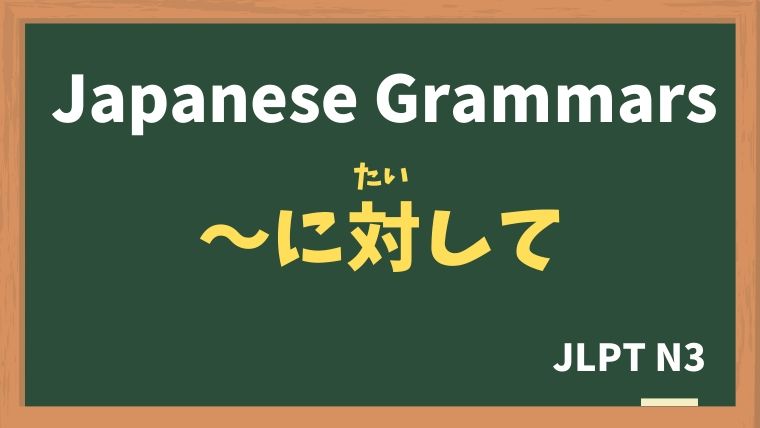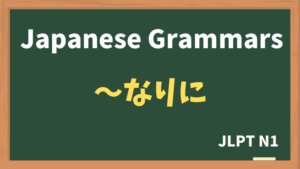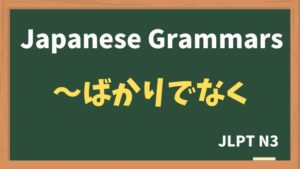
Explanation:〜に対して
fa-check-circleMeaning
① "〜に"
"toward a thing/state/event, responding to a thing/state/event"
Used to indicate direction or attitude toward a person, group, or concept. It can be translated as "toward," "to," or "against" in English, depending on the context. This expression is often used to describe actions, feelings, or attitudes directed at someone or something.
② "〜とは反対に"
"in contrast to"
Used to indicate a contrast between two different subjects or situations. In this usage, it functions similarly to "whereas" or "in contrast to" in English, highlighting differences between two elements.
fa-check-circleForm
① N + に対して
② イA(plain form)+ のに対して
なA + であるのに対してい
なA + なのに対して
N + であるのに対して
N + なのに対して
fa-check-circleJLPT Level
N3
Sample sentenes
1. 〜に
お年寄りに対して、そんな言い方は失礼ですよ。
That's a rude way to talk to an elderly person.
先生に対して、そんな言葉を使ってはいけません。
You should not use such words towards the teacher.
お客様に対して、その態度はなんですか!
What's that attitude towards the customer?
トムさんは誰に対しても、親切だ。
Tom is kind to everyone.
ジェームスさんは女の子に対しては優しい。
James is kind to girls.
先生は私の質問に対して、何も答えてくれなかった。
The teacher didn’t answer my question at all.
その決定に対して、多くの反対意見があった。
There were many opposing opinions against that decision.
2. 〜とは反対に
兄はおとなしい性格なのに対して、弟はとても活発だ。
While my older brother is quiet, my younger brother is very active.
山本先生は厳しいのに対して、田中先生はとても優しい。
While Mr. Yamamoto is strict, Mr. Tanaka is very kind.
私の国は今、暖かいのに対して、日本は今寒い。
While it is warm in my country now, it is cold in Japan.
昼間は暖かいのに対して、夜は冷える。
While it's warm during the day, it gets cold at night.
Vocabulary
| Japanese |
English | |
| 失礼 | しつれい | rude |
| 態度 | たいど | attitude |
| 性格 | せいかく | personality |
| 厳しい | きびしい | strict |






